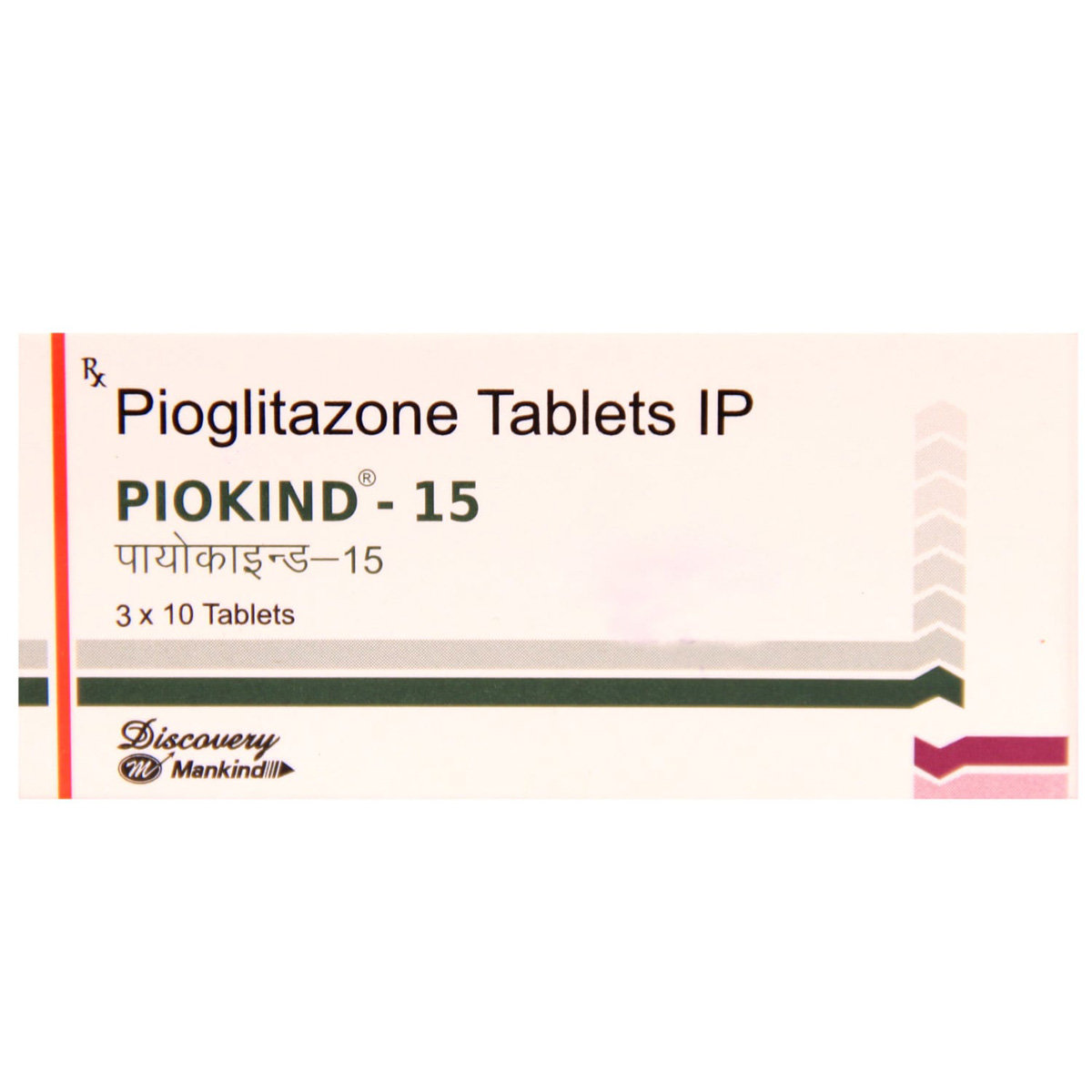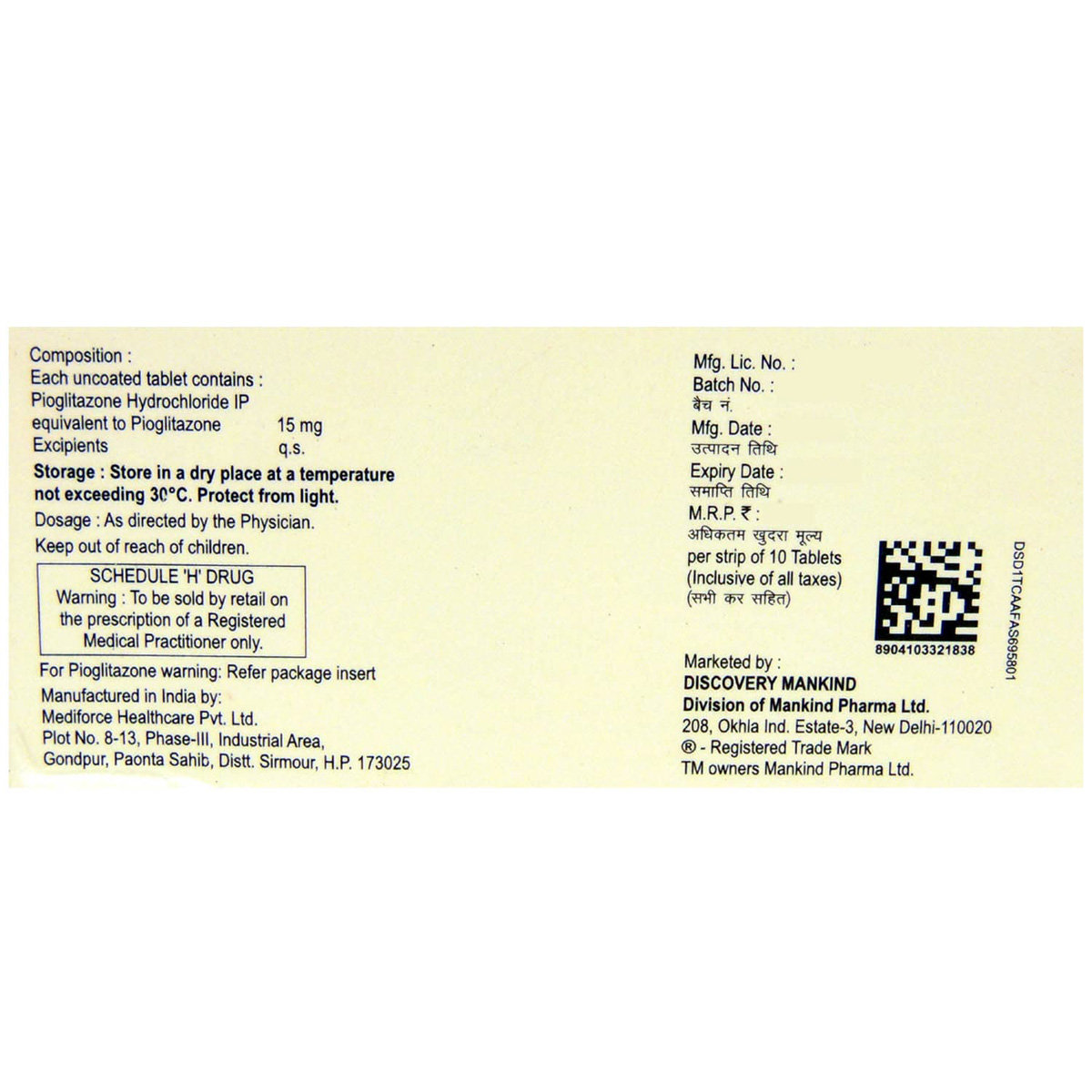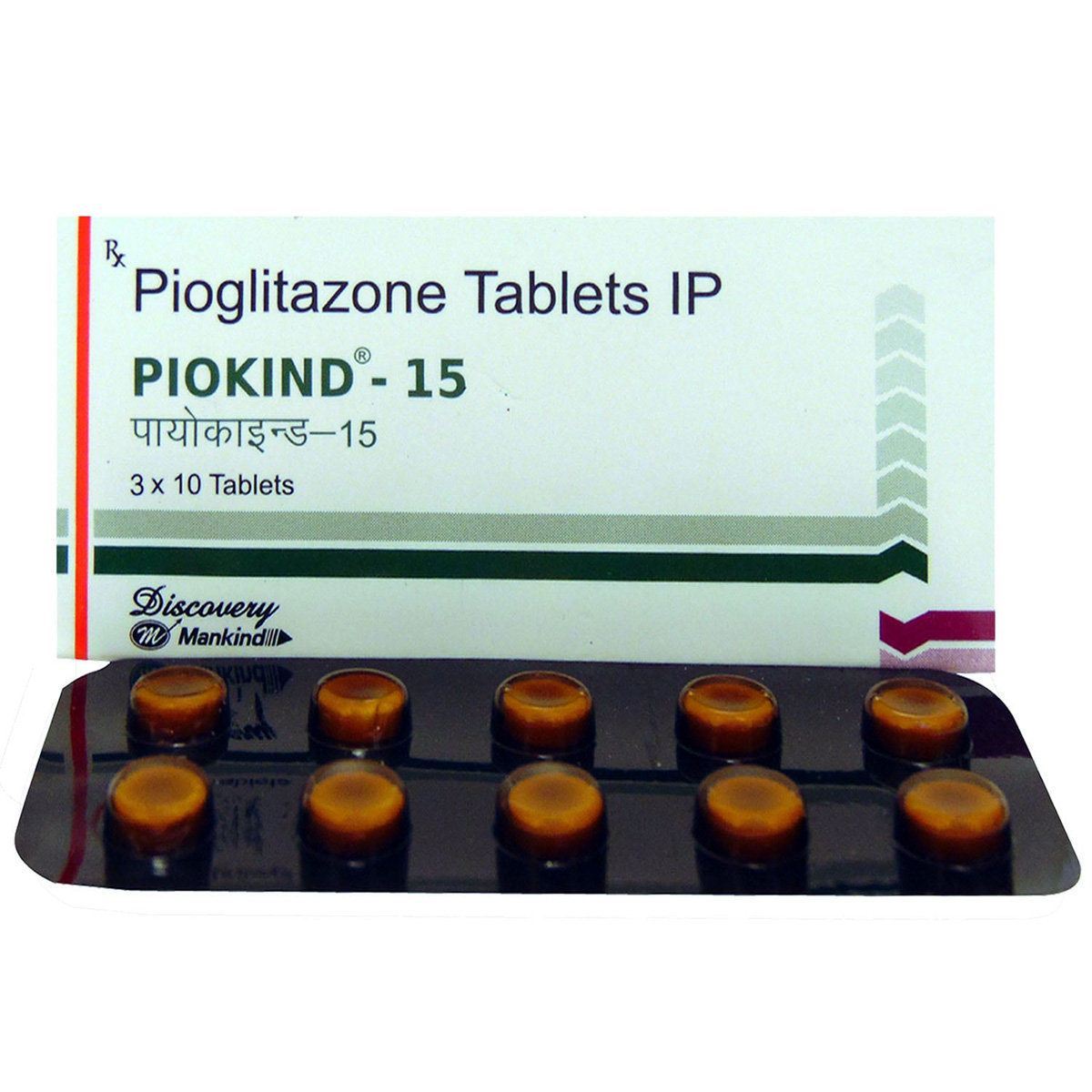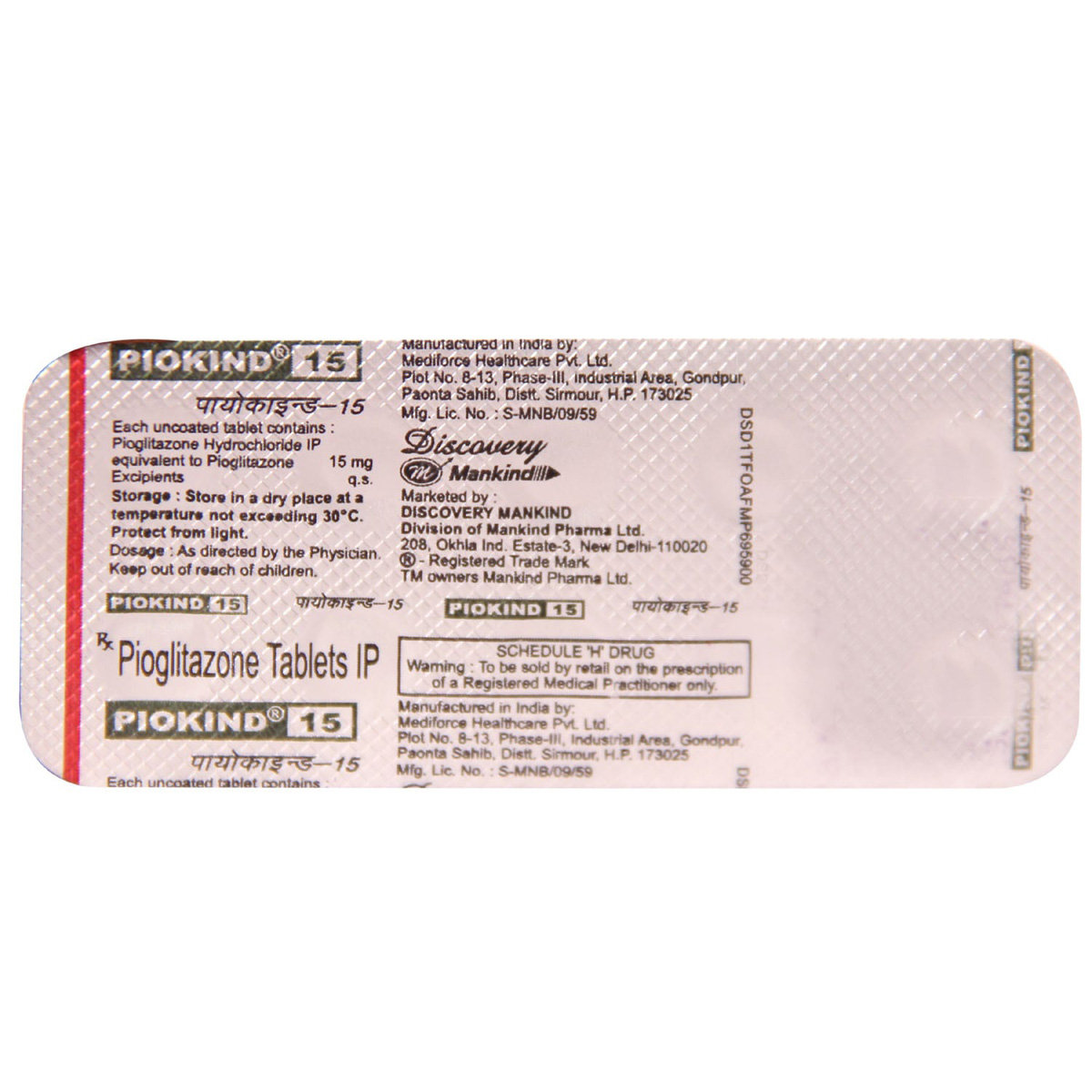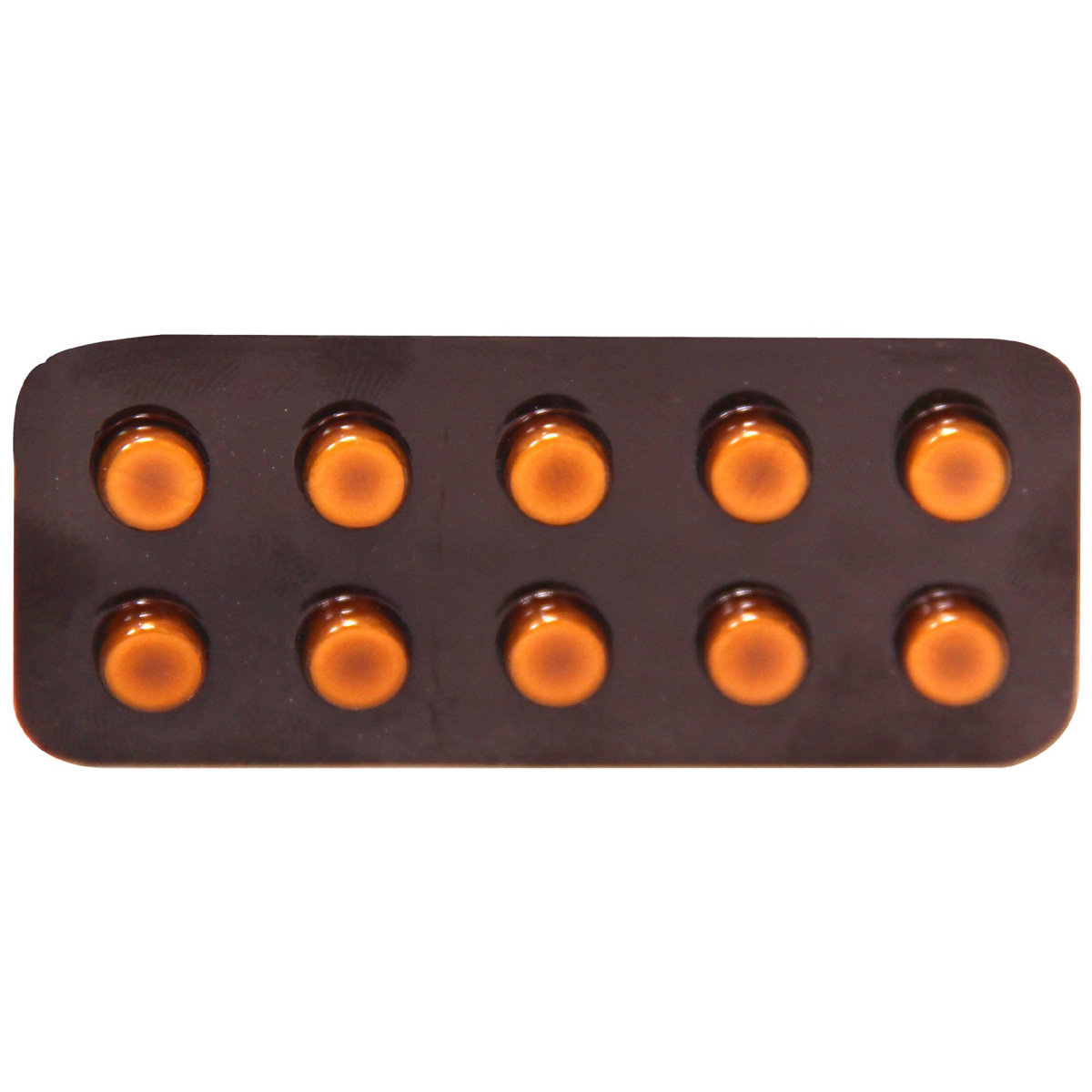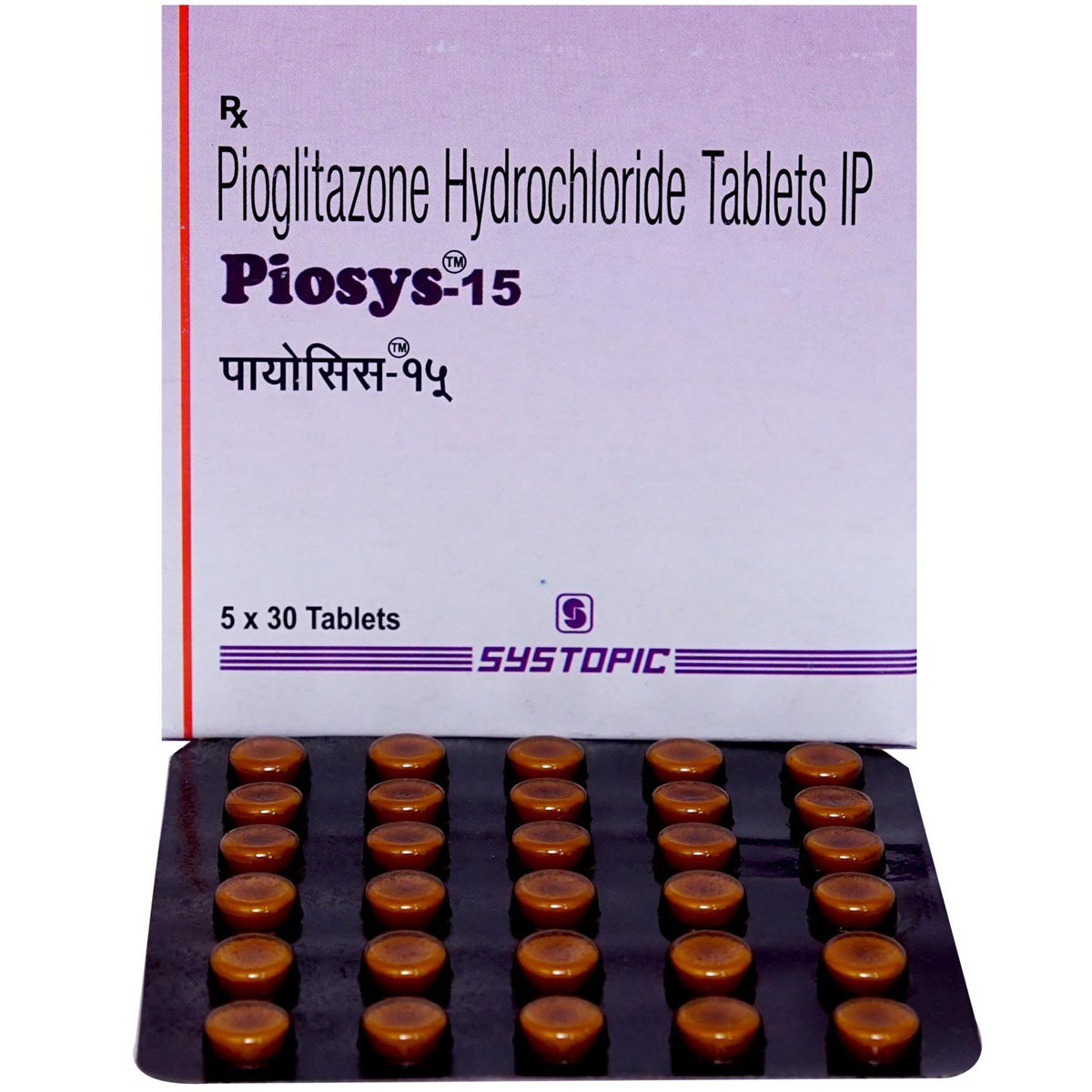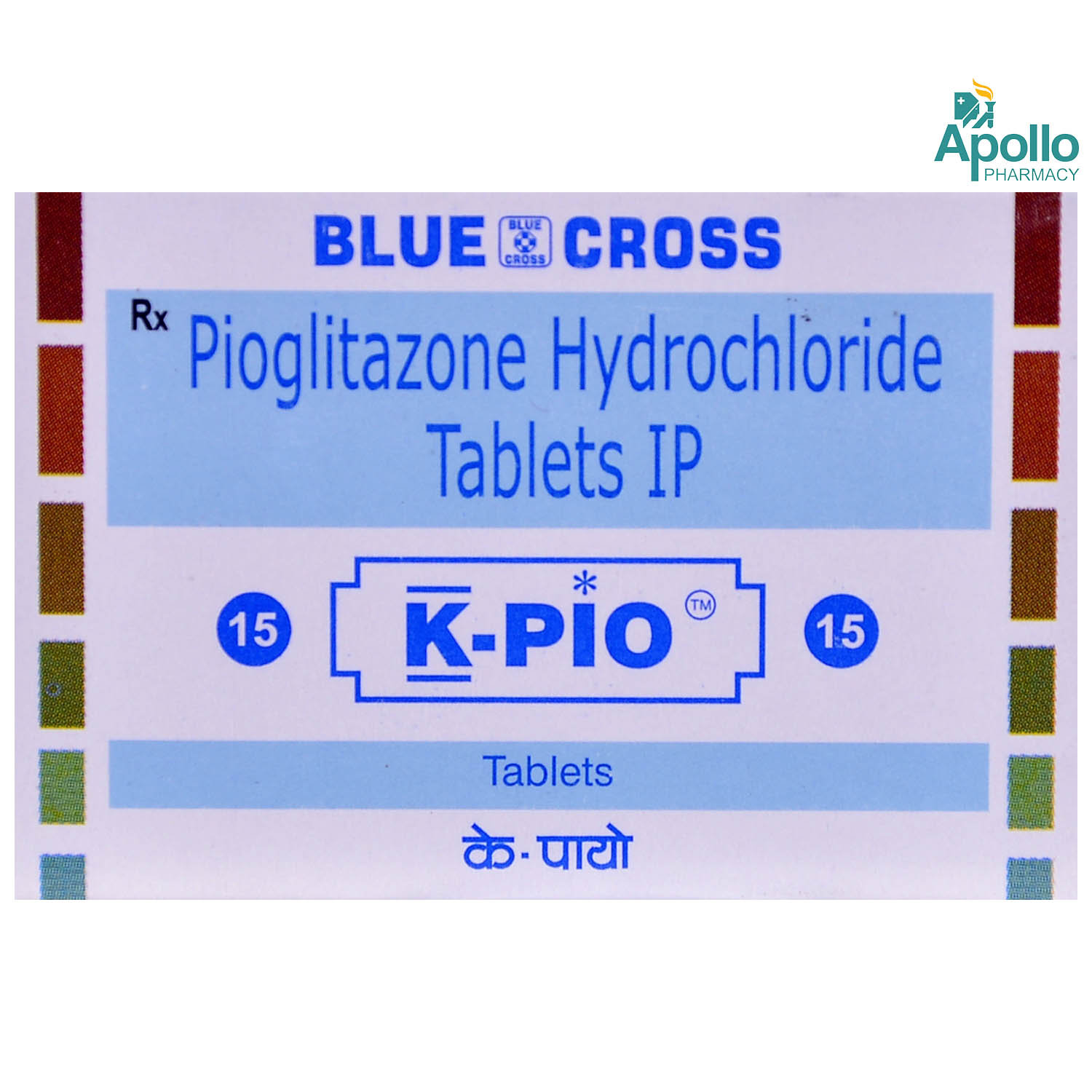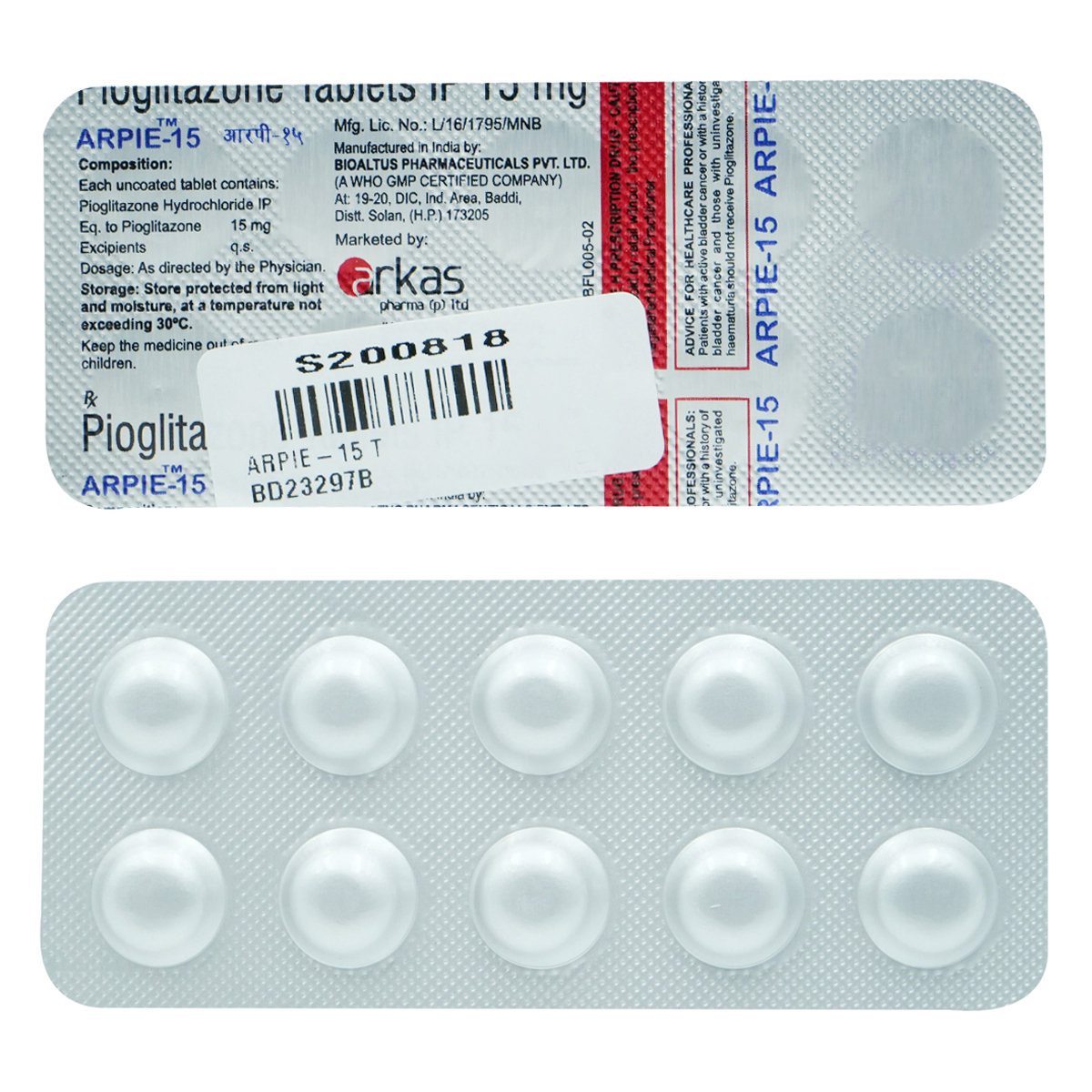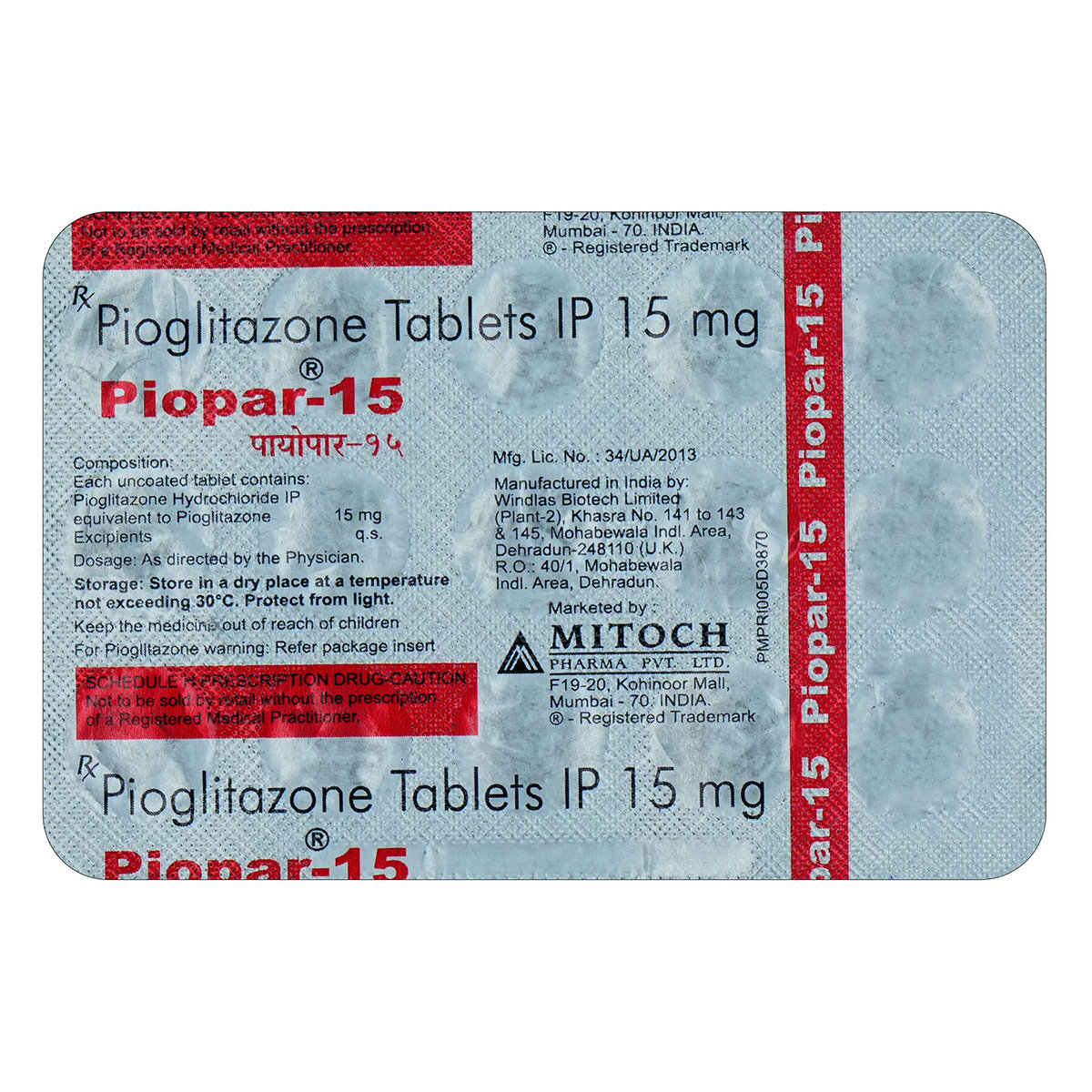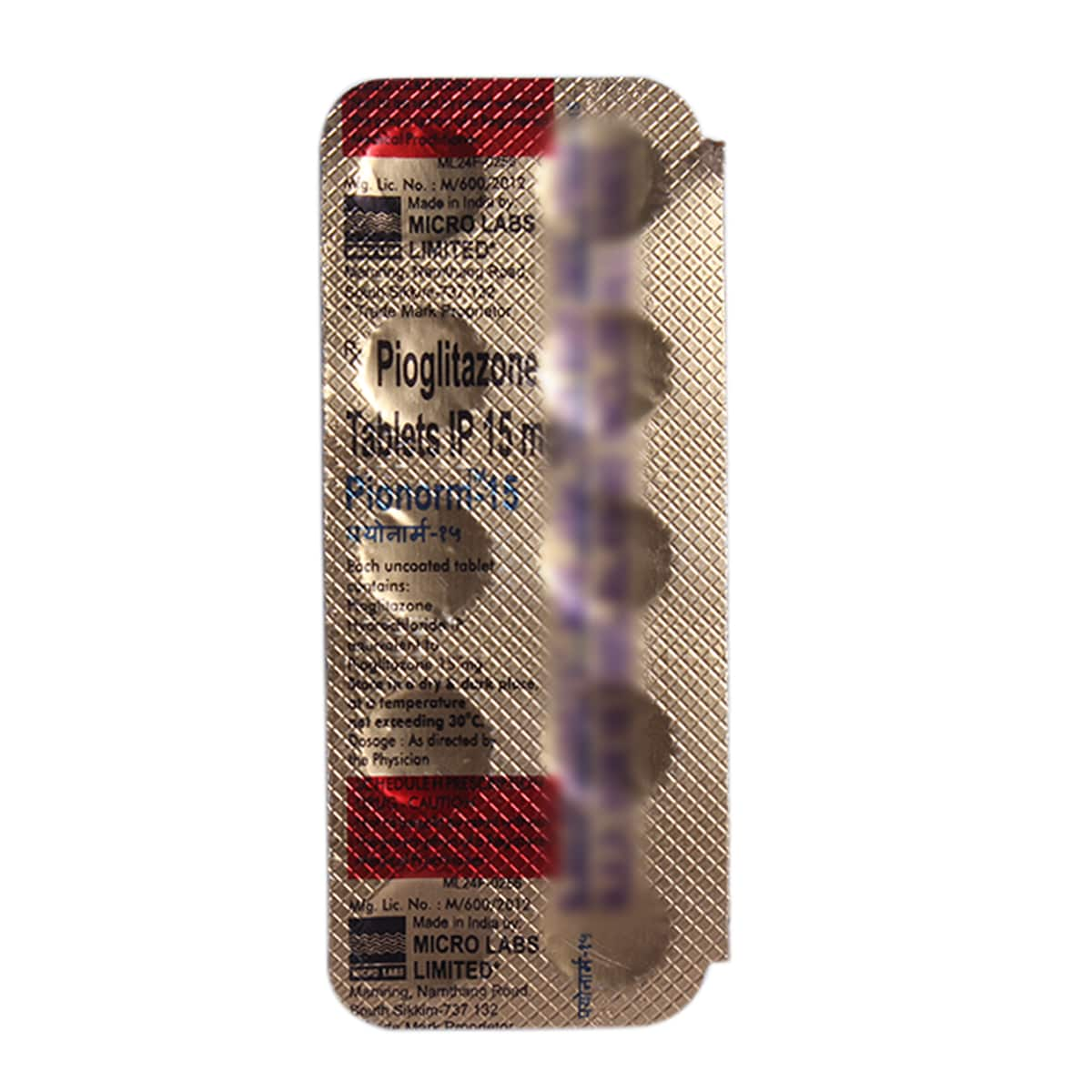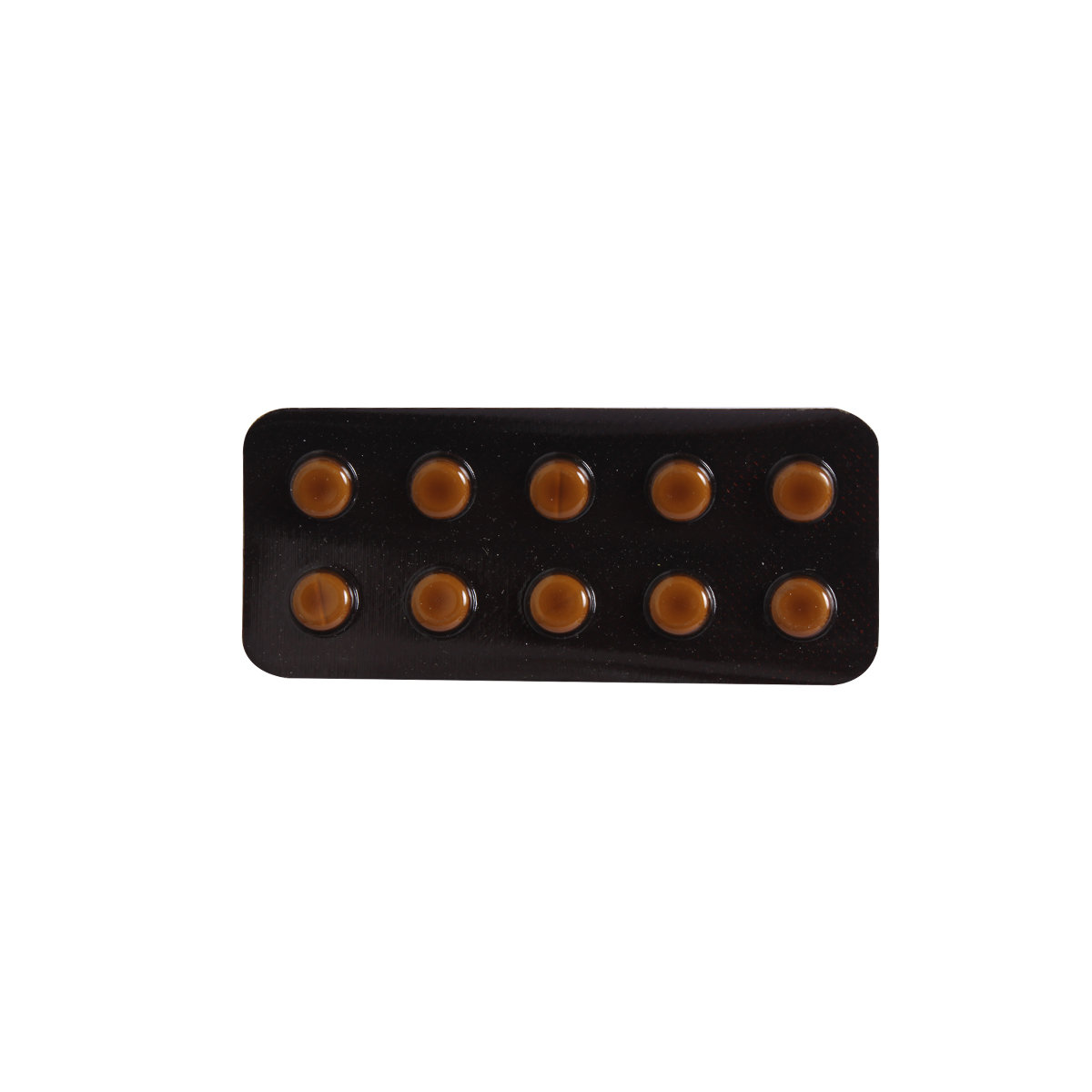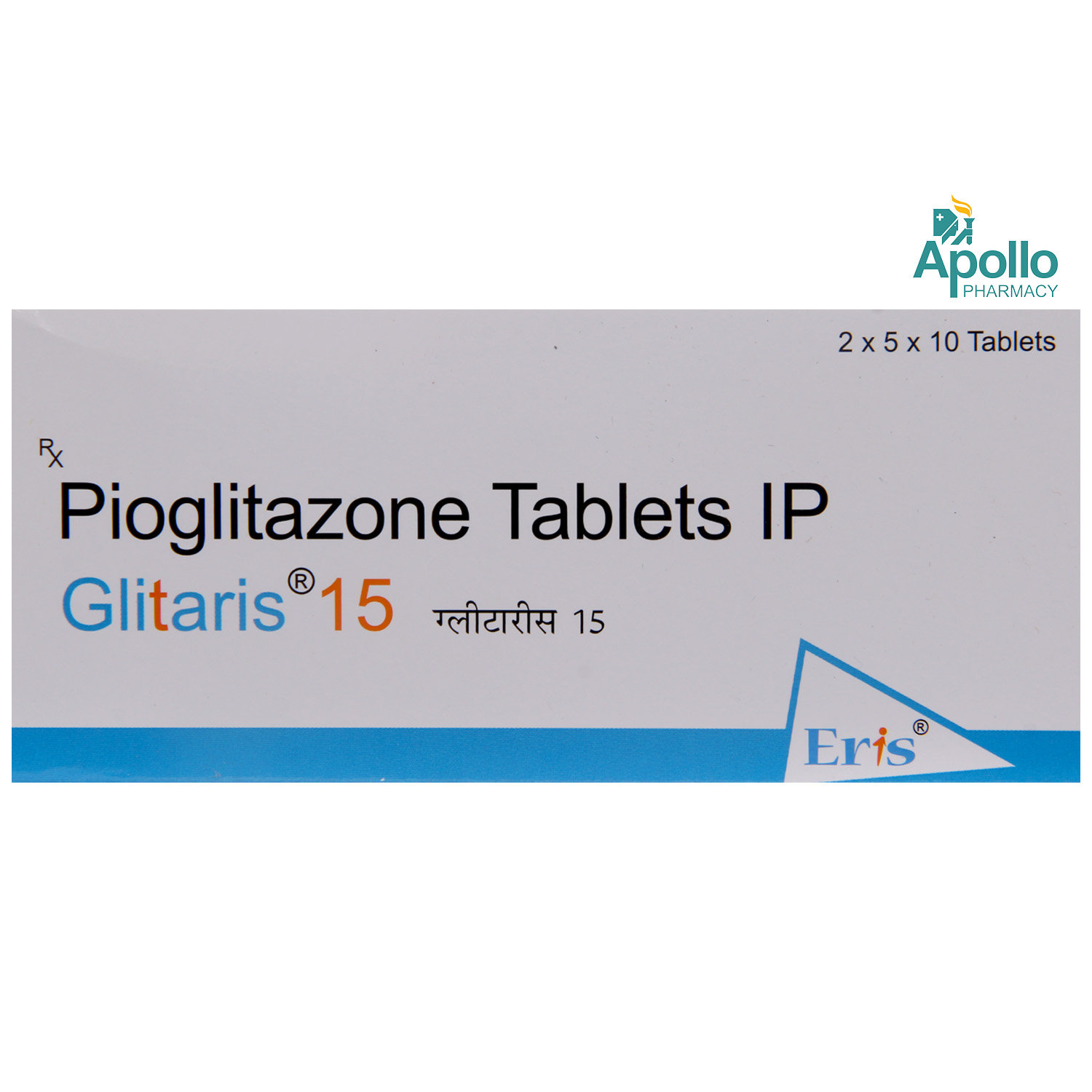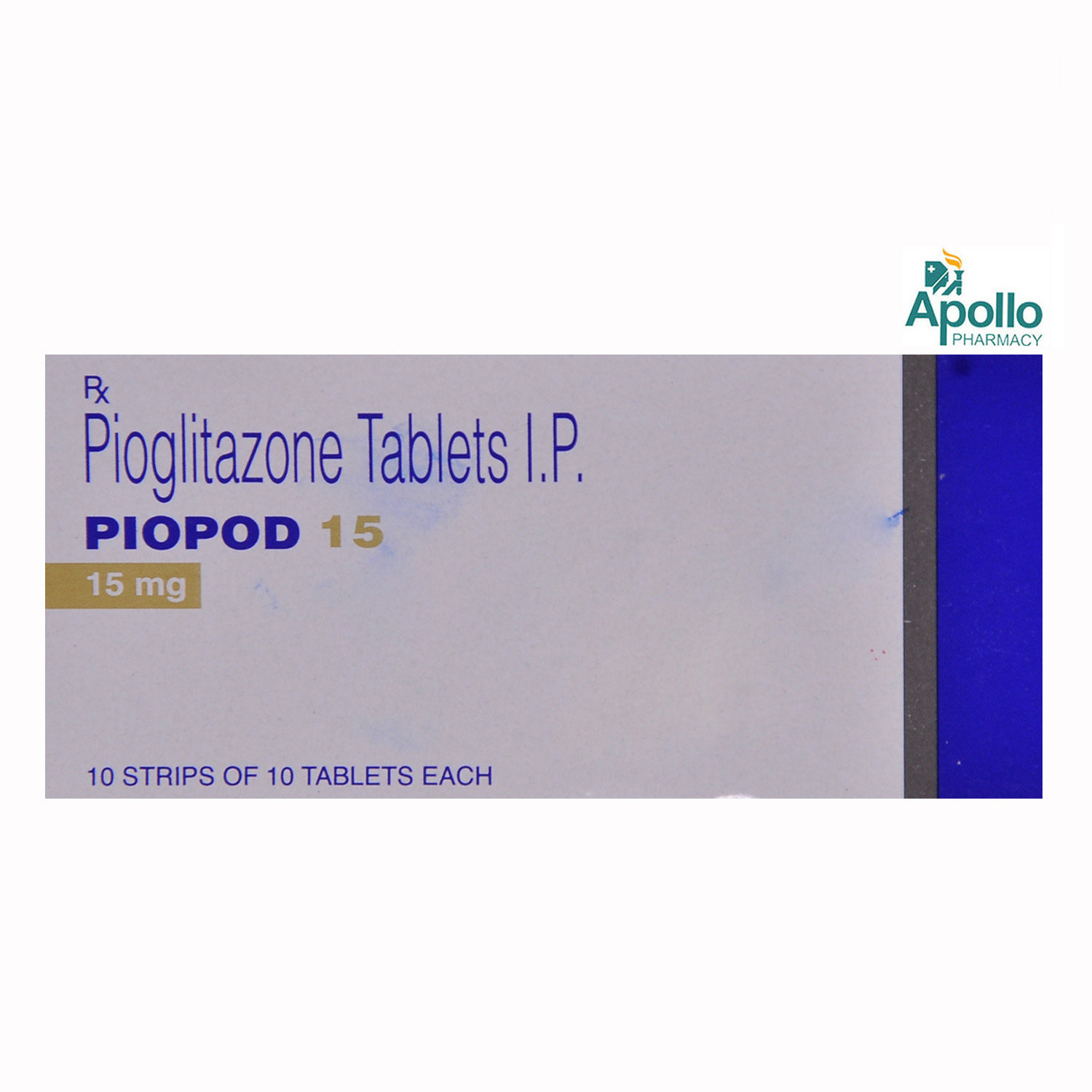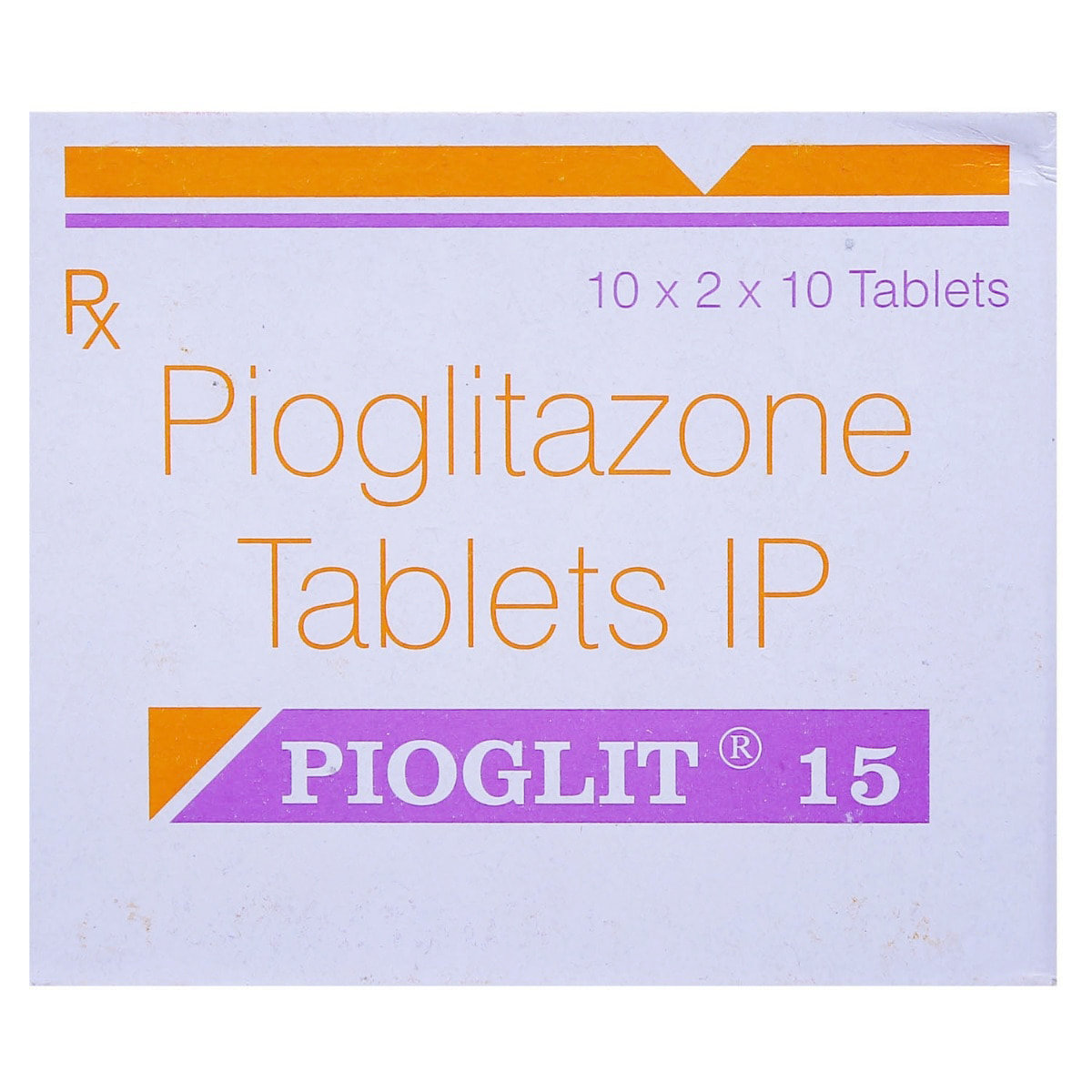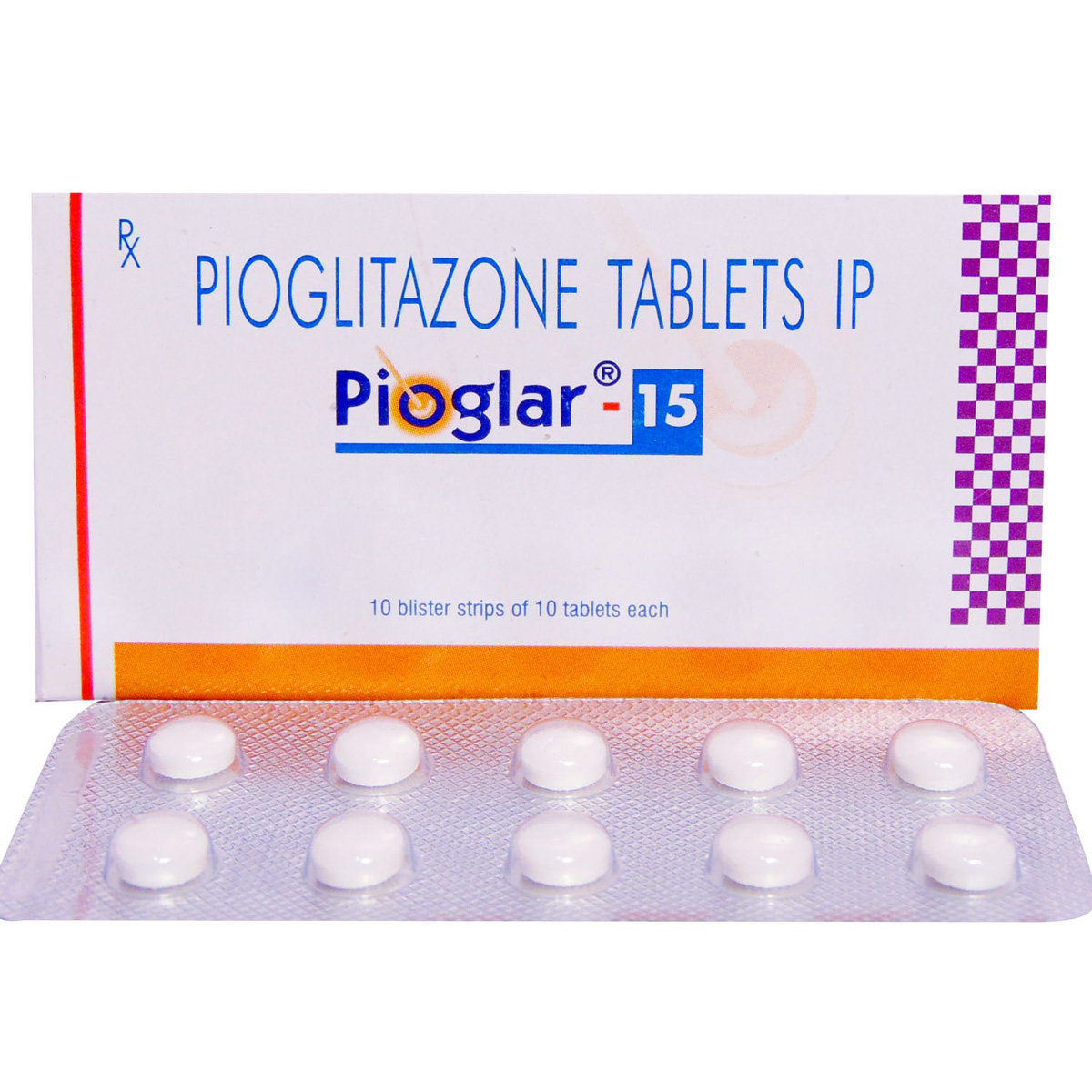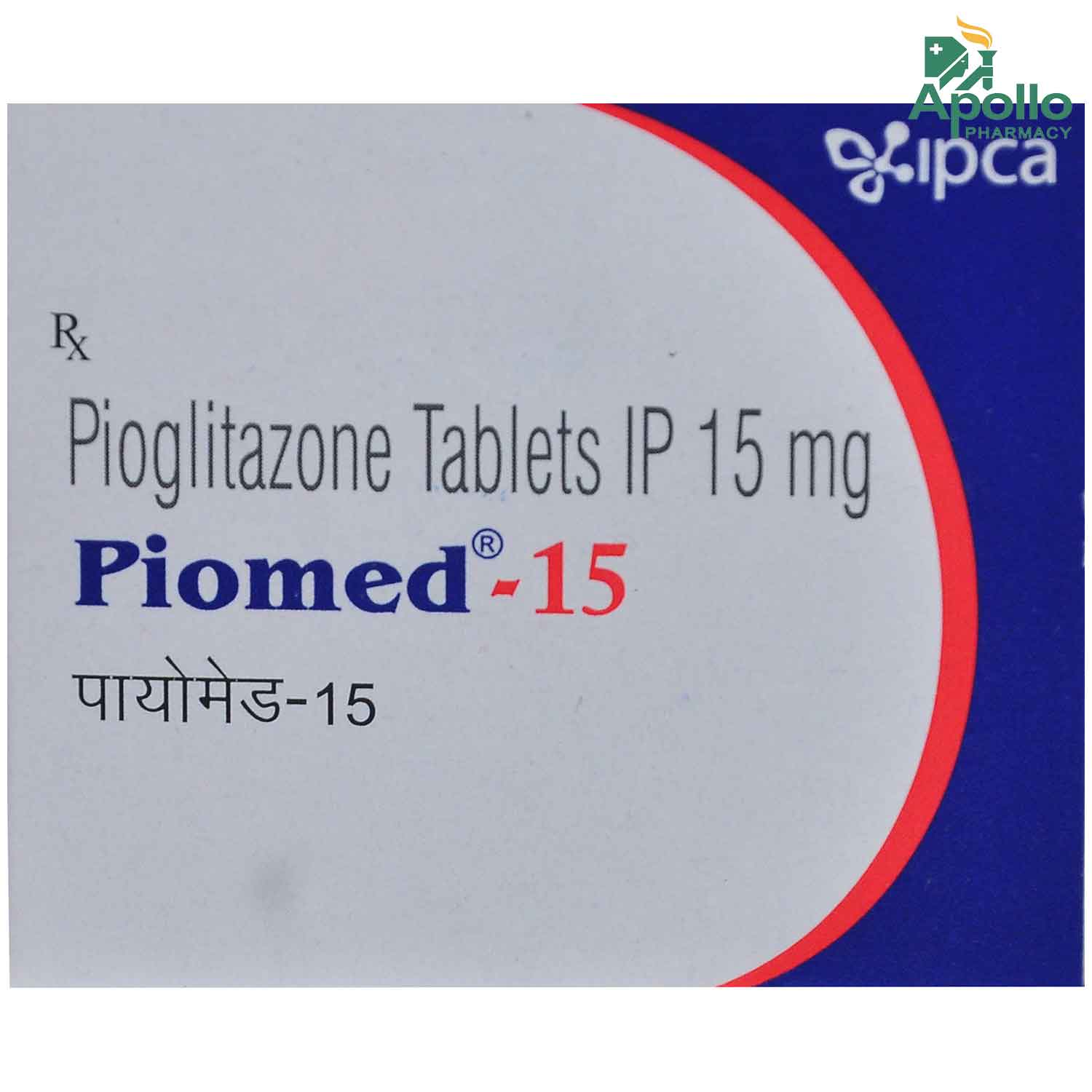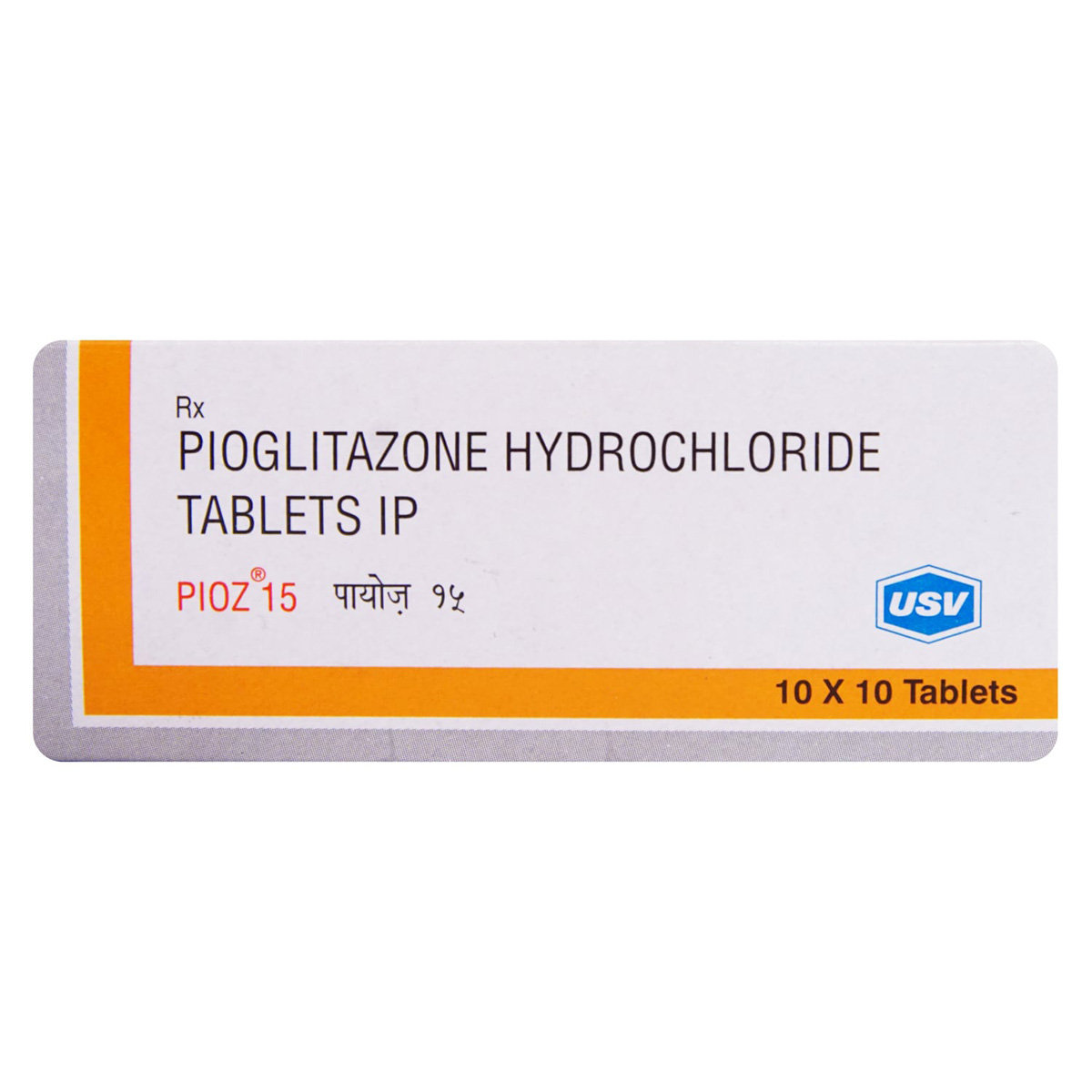PIOKIND 15MG TABLET
MRP ₹68
(Inclusive of all Taxes)
₹10.2 Cashback (15%)
Provide Delivery Location
Online payment accepted
 Prescription drug
Prescription drugWhats That
Composition :
Manufacturer/Marketer :
Consume Type :
Expires on or after :
Return Policy :
About PIOKIND 15MG TABLET
PIOKIND 15MG TABLET is an anti-diabetic medicine belonging to the class of thiazolidinedione (TZD), also called 'glitazones', used to treat type 2 (non-insulin-dependent) diabetes mellitus. Type 2 diabetes is an illness where the body doesn't make enough insulin, or the insulin that it makes doesn't work properly. This is diabetes that usually develops in adulthood.
PIOKIND 15MG TABLET contains Pioglitazone which helps control the sugar level in your blood when you have type 2 diabetes by helping your body make better use of the insulin it produces. Your doctor will check whether Pioglitazone is working 3-6 months after you start taking it.
PIOKIND 15MG TABLET should be taken with food or an empty stomach. However, it should be taken at the same time of the day each time for the best results. For better advice, your doctor will decide what dose should be taken, which can change quickly depending on your condition. The most common side effect of PIOKIND 15MG TABLET is upper respiratory tract infection, headache, sinusitis, myalgia (muscle pain), and pharyngitis. Most of these side effects of PIOKIND 15MG TABLET do not require medical attention and gradually resolve over time. Please consult your doctor if these side effects become troublesome.
PIOKIND 15MG TABLET should not be stopped even if you feel better without consulting your doctor as sugar levels change. If you stop taking PIOKIND 15MG TABLET suddenly, it may increase your sugar levels which could further increase the risk of eyesight loss (retinopathy), kidney damage (nephropathy) and nerve damage (neuropathy). PIOKIND 15MG TABLET should not be taken if you have type 1 diabetes mellitus, if you are hypersensitive (allergic) to PIOKIND 15MG TABLET or any of the other ingredients of PIOKIND 15MG TABLET, have heart failure or have had heart failure in the past, diabetic ketoacidosis (a complication of diabetes causing rapid weight loss, nausea or vomiting), severe kidney or liver disease, bladder cancer. Please inform your doctor if you have any heart disease, are or planning to get pregnant or breastfeeding. The safety and efficacy of PIOKIND 15MG TABLET in children under 18 years have not been established, so it should not be given to them.
Uses of PIOKIND 15MG TABLET
Directions for Use
Key Benefits
PIOKIND 15MG TABLET is an antidiabetic drug (thiazolidinedione/glitazones) used along with a proper diet and exercise to control high blood sugar (hyperglycaemia) in patients with type 2 diabetes. PIOKIND 15MG TABLET works by helping to restore your body's appropriate response to insulin, thereby lowering your blood sugar.
Storage
- If you experience low blood sugar levels, inform your doctor. They will assess the severity and make recommendations for the next actions.
- Your doctor will assess your symptoms, blood sugar levels, and overall health before recommending the best course of action, which may include treatment, lifestyle modifications, or prescription adjustments.
- Follow your doctor's instructions carefully to manage the episode and adjust your treatment plan.
- Make medication adjustments as recommended by your doctor to prevent future episodes.
- Implement diet and lifestyle modifications as your doctor advises to manage low blood sugar levels.
- Monitor your blood sugar levels closely for patterns and changes.
- Track your progress by recording your blood sugar levels, food intake, and physical activity.
- Seek further guidance from your doctor if symptoms persist or worsen so that your treatment plan can be revised.
- Eat fiber-rich foods, fruits, and vegetables, and track your food intake to monitor calorie consumption.
- Limit takeout and restaurant meals, and weigh yourself weekly to stay motivated.
- Build balanced meals, allow yourself to enjoy treats in moderation, and prioritize sleep and stress management through exercise and relaxation techniques.
- Reduce salt intake to minimize fluid buildup.
- Use compression stockings, sleeves, or gloves.
- Gently massage the affected area towards the heart.
- Protect the swollen area from injury and keep it clean.
- Use lotion or cream to keep the skin moisturized.
- Heart failure needs immediate medical attention. To manage this effect, the doctor's instructions must be followed strictly.
- Take care of change in your weight as there can be sudden changes.
- Rest and refrain from physical activity, and restart after a few days.
- Reduce your salt intake and control your diet with the help of a dietician.
- Track your symptoms and keep your follow-up appointments to manage severe side effects.
- Heart failure needs immediate medical attention. To manage this effect, the doctor's instructions must be followed strictly.
- Take care of change in your weight as there can be sudden changes.
- Rest and refrain from physical activity, and restart after a few days.
- Reduce your salt intake and control your diet with the help of a dietician.
- Track your symptoms and keep your follow-up appointments to manage severe side effects.
- Chest pain may last for a while and needs immediate medical attention as it is a significant health issue to be attended to.
- Take rest and refrain from doing physical activity for a while, and restart after a few days.
- Try applying an ice pack to the strained area for at least 20 minutes thrice a day. Ice pack thus helps reduce inflammation.
- Sit upright and maintain proper posture if there is persistent chest pain. • Use extra pillows to elevate your position and prop your chest up while sleeping.
Drug Warnings
Fluid retention (oedema) may occur and can lead to congestive heart failure so, a combination of use with insulin and use in heart failure may increase the risk in patients taking PIOKIND 15MG TABLET. You should not take PIOKIND 15MG TABLET if you have kidney disease, as measured by a blood test. PIOKIND 15MG TABLET, when used with or without insulin, $ name tends to lower the blood sugar level. So, the doctor may lower the dose of insulin. Increased fractures may be reported in some women taking PIOKIND 15MG TABLET. Patients with bladder cancer and macular oedema (fluid build-up in the macula part of the retina of the eye) should consult the doctor before using PIOKIND 15MG TABLET.
Drug-Drug Interactions
Drug-Drug Interactions
Login/Sign Up
Co-administration of Piokind 15mg Tablet with Gatifloxacin may sometimes affect blood glucose levels. Both high blood glucose and, less frequently, low blood glucose have been reported.
How to manage the interaction:
Although there is a possible interaction, Piokind 15mg Tablet can be taken with Gatifloxacin if prescribed by the doctor. Consult the prescriber if you experience symptoms such as nervousness, confusion, headache, dizziness, drowsiness, tremors, nausea, hunger, weakness, excessive sweating, rapid heartbeat, increased urination, increased thirst, and increased hunger. Maintaining blood glucose levels is advised. Do not discontinue any medications without a doctor's advice.
Co-administration of Teriflunomide and Piokind 15mg Tablet may increase the risk of liver damage.
How to manage the interaction:
Although taking Piokind 15mg Tablet and Teriflunomide together can possibly result in an interaction, it can be taken if a doctor has prescribed it. However, if you experience symptoms such as fever, chills, joint pain or swelling, unusual bleeding or bruising, skin rash, itching, nausea, vomiting, dark urine, light stools, and skin or eye yellowing, decreased hunger, consult the doctor. Do not stop using any medications without talking to the doctor.
Co-administration of Piokind 15mg Tablet and Leflunomide may increase the risk of liver damage.
How to manage the interaction:
Although taking Piokind 15mg Tablet and Leflunomide together can possibly result in an interaction, it can be taken if a doctor has prescribed it. However, if you have any of the following symptoms: fever, chills, joint pain or swelling, unusual bleeding or bruising, skin rash, itching, fatigue, lack of appetite, nausea, vomiting, abdominal pain, dark urine, light stools, and/or yellowing of the skin or eyes, consult a doctor immediately. Do not discontinue any medications without a doctor's advice.
Taking Piokind 15mg Tablet with Clopidogrel can increases the blood levels of Piokind 15mg Tablet, when these medicines are taken together, you may experience hypoglycemia (low blood sugar).
How to manage the interaction:
Taking Clopidogrel together with Piokind 15mg Tablet may lead to interaction, but it can be taken if prescribed by your doctor. Consult a doctor immediately if you experience headache, dizziness, drowsiness, nervousness, weakness, shaking, or sweating. Do not discontinue any medication without consulting the doctor.
Co-administration of Piokind 15mg Tablet and Lomitapide may increase the risk of liver damage.
How to manage the interaction:
Although taking Lomitapide and Piokind 15mg Tablet together can possibly result in an interaction, it can be taken if a doctor has prescribed it. However, if you have any of the following symptoms: fever, chills, joint pain or swelling, unusual bleeding or bruising, skin rash, itching, fatigue, lack of appetite, nausea, vomiting, abdominal pain, dark urine, light stools, and/or yellowing of the skin or eyes, consult a doctor immediately. Do not discontinue any medications without a doctor's advice.
When Piokind 15mg Tablet is taken with Gemfibrozil, the level of Piokind 15mg Tablet in the blood can go up. This can increase the risk or severity of side effects.
How to manage the interaction:
Taking Piokind 15mg Tablet with Gemfibrozil together can possibly result in an interaction, but it can be taken if a doctor has advised it. However, if you experience visual abnormalities, excessive or quick weight gain, swelling in the ankles or legs, trouble breathing, unusual fatigue, chest discomfort or tightness, fever, chills, joint pain or swelling, unusual bleeding or bruising, skin rash, itching, loss of appetite, fatigue, nausea, vomiting, dark coloured urine, light coloured stools, or yellowing of the skin or eyes, seek medical attention immediately. Do not discontinue any medications without consulting a doctor.
Co-administration of Ketoconazole and Piokind 15mg Tablet, can increase the risk of side effects.
How to manage the interaction:
Taking Ketoconazole with Piokind 15mg Tablet together can result in an interaction, it can be taken if a doctor has advised it. However, consult the doctor, if you experience any unusual symptoms. Do not discontinue any medications without a doctor's advice.
Co-administration of Mipomersen and Piokind 15mg Tablet may increase the risk of liver damage.
How to manage the interaction:
Although taking Piokind 15mg Tablet and Mipomersen together can possibly result in an interaction, it can be taken if a doctor has prescribed it. However, if you experience symptoms such as fever, chills, joint pain or swelling, unusual bleeding or bruising, skin rash, itching, nausea, vomiting, dark urine, light stools, and skin or eye yellowing, decreased hunger, consult the doctor. Do not stop using any medications without talking to the doctor.
Drug-Food Interactions
Drug-Food Interactions
Login/Sign Up
Diet & Lifestyle Advise
- Fill your half plate with starchy veggies, a quarter with proteins, and a quarter with whole grain.
- Eat at regular interval. Do not take the long gap between a meal or snack.
- Monitor your blood sugar level regularly especially when there are a lot of fluctuations.
- Invest at least 150 min of moderate-intensity physical activity and 15 minutes of high-intensity exercise every week.
- Lose weight gradually to achieve a healthy body mass index (18.5 to 24.9).
- Replace refined carbohydrates containing foods with whole grain foods and increase intake of fruits and veggies and other fibre enriched foods.
- Reduce intake of saturated fat (or hidden fats) in the food like chips, crisps, pastries, biscuits and samosas. Choose omega 3 fatty acid-containing oils for daily cooking. For frying, you may use palm oil, mustard oil, groundnut oil, rice bran oil, and safflower oil.
- Do not take stress as it may elevate your blood sugar level. You may adopt stress management techniques like mindfulness, yoga or meditation to control stress-related to blood sugar changes.
- Opt for low-fat dairy products (low-fat yoghurt, fat-free milk and cheese etc.).
- Keep your blood pressure as normal (120/80) as possible. As it reduces the risk of cardiovascular diseases in diabetes patients.
Side Effects of PIOKIND 15MG TABLET
- Upper respiratory tract infection
- Headache
- Sinusitis
- Myalgia (muscle pain)
- Pharyngitis (inflammation of pharynx located back of neck)
Habit Forming
Therapeutic Class
All Substitutes & Brand Comparisons
RX
Piosys-15 Tablet 30's
Systopic Laboratories Pvt Ltd
₹54.5
(₹1.64 per unit)
73% CHEAPERRX
K-Pio 15 Tablet 15's
Blue Cross Laboratories Pvt Ltd
₹32.5
(₹1.95 per unit)
68% CHEAPERRX
Arpie-15 Tablet 10's
Arkas Pharma Pvt Ltd
₹41
(₹3.69 per unit)
39% CHEAPER
Author Details
We provide you with authentic, trustworthy and relevant information
Drug-Diseases Interactions
Drug-Diseases Interactions
Login/Sign Up
FAQs
Drug-Drug Interactions Checker List
- GEMFIBROZIL
- RIFAMPICIN
Special Advise
- Keep taking the drug even if you think your blood sugar levels are under control. If you miss a dose, do not take a larger dose. Consult your treating physician for advice.
- Take short, frequent meals, and avoid prolonged fasting when taking this drug. Beware of symptoms of hypoglycaemia which include sweating, dizziness, palpitations, shivering, intense thirst, dry mouth, dry skin, frequent urination etc. Whenever you experience the symptoms mentioned above, immediately consume 5-6 candies, three glucose biscuits, or three teaspoons of honey/sugar and get in touch with your physician. Make sure to carry these with you at all times, especially for long travels.
- Before the doctor prescribes this medicine, it is always better that your physician knows about any underlying conditions like kidney or liver disease, prior heart attack, alcohol intake, etc.
- Avoid drinking alcohol while on this drug as it increases the risk of hypoglycaemia (decrease in blood sugar which might be fatal in some cases) and lactic acidosis (when the lactic acid increases in the body, which impacts the functioning of various organs in the body).
- Try to quit smoking and reduce your intake of carbohydrate-rich food like potatoes, rice, mangoes, bread, sugar etc.
Disease/Condition Glossary
Type 2 diabetes is a chronic or lifelong disease that keeps the body away from properly utilizing insulin. Hence, people affected with type 2 diabetes either do not produce enough insulin or resist insulin action. Middle-aged or older are most likely to suffer from type 2 diabetes, also known as adult-onset diabetes. Symptoms of type 2 diabetes include increased thirst, frequent urination at night, slow wound healing, increased hunger, fatigue, and blurred vision. There may be weight gain in some cases, while weight loss may be observed in rare cases. The complication of type 2 diabetes also includes neuropathy (nerve problems), nephropathy (kidney problems), and retinopathy (damaged retina of eyes or blindness), loss of limbs, sexual dysfunction, and increase the chance of heart attack or stroke.

Have a query?
Alcohol
Safe if prescribed
You are recommended not to consume alcohol along with PIOKIND 15MG TABLET to avoid unpleasant side-effects.
Pregnancy
Consult your doctor
PIOKIND 15MG TABLET is not generally recommended in pregnancy. It's not clear whether pioglitazone can harm your unborn baby. It is highly recommended to consult your doctor before taking this drug in case you are pregnant.
Breast Feeding
Consult your doctor
It is highly recommended to consult your doctor before taking PIOKIND 15MG TABLET.
Driving
Safe if prescribed
PIOKIND 15MG TABLET will not affect your ability to drive or use machines but take care if you experience abnormal vision.
Liver
Consult your doctor
PIOKIND 15MG TABLET to be taken with caution, especially if you have a history of liver diseases/conditions. The dose may have to be adjusted by your doctor.
Kidney
Consult your doctor
PIOKIND 15MG TABLET to be taken with caution, especially if you have a history of Kidney diseases/conditions. The dose may have to be adjusted by your doctor.
Children
Safe if prescribed
The safety and efficacy of PIOKIND 15MG TABLET in children have not been established. PIOKIND 15MG TABLET is not recommended in children.

